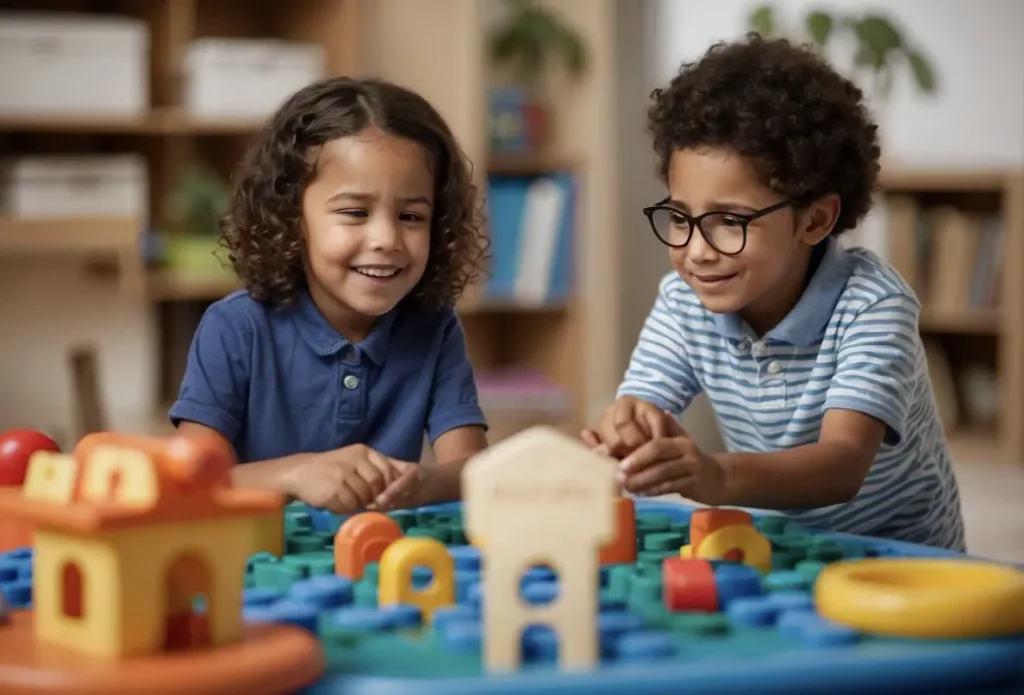Understanding the Role of a Child Psychologist in Melbourne

When it comes to ensuring the well-being of our children, parents often seek guidance from various professionals. One such professional is a child psychologist. In Melbourne, child psychologists play a vital role in supporting the emotional and psychological development of children. This article explores the importance of child psychologists, what they do, and how they can help your child thrive.
What Is a Child Psychologist?
A child psychologist is a trained mental health professional who specializes in diagnosing and treating emotional, behavioral, and developmental issues in children and adolescents. Unlike general psychologists, child psychologists are specifically trained to work with young individuals and understand their unique developmental needs.
Why See a Child Psychologist?
- Addressing Behavioral Issues
- Children may exhibit various behavioral issues, such as frequent tantrums, aggression, or defiance. A child psychologist can help identify the underlying causes of these behaviors and develop strategies to address them. Through therapy, children can learn healthier ways to express their emotions and improve their behavior.
- Managing Emotional Challenges
Emotional challenges, such as anxiety, depression, or low self-esteem, can affect children just as much as adults. A child psychologist can provide a safe space for children to express their feelings and learn coping mechanisms to manage their emotions effectively.
- Supporting Developmental Concerns
Some children may experience developmental delays or difficulties, such as problems with language development or social skills. A child psychologist can assess these concerns and provide interventions to support the child’s development and help them reach their full potential.
- Enhancing Academic Performance
Academic stress and learning difficulties can impact a child’s self-esteem and overall well-being. A child psychologist can work with children to develop strategies for managing stress, improving focus, and addressing learning challenges. This support can help children perform better academically and feel more confident in their abilities.
- Facilitating Family Dynamics
Family dynamics play a significant role in a child’s development. A child psychologist can work with families to address issues such as parental conflict, sibling rivalry, or changes in family structure. By improving communication and understanding within the family, a child psychologist can help create a supportive environment for the child.
What to Expect from a Child Psychologist
- Assessment and Evaluation
The first step in working with a child psychologist typically involves an assessment to understand the child’s needs and concerns. This may include interviews with the child, parents, and teachers, as well as observations and standardized tests. The goal is to gather comprehensive information to inform the treatment plan.
- Therapeutic Interventions
Based on the assessment, the child psychologist will develop a treatment plan tailored to the child’s needs. Therapeutic interventions may include individual therapy, play therapy, or family therapy. The psychologist will use evidence-based techniques to help the child address their challenges and achieve their goals.
- Parent Involvement
Parents play a crucial role in their child’s therapy. A child psychologist will often involve parents in the therapeutic process by providing guidance on how to support their child’s progress at home. This may include implementing strategies discussed in therapy and maintaining open communication with the psychologist.
- Progress Monitoring
Throughout the therapy process, the child psychologist will monitor the child’s progress and make adjustments to the treatment plan as needed. Regular check-ins with parents and teachers may also be part of this process to ensure that the child is making progress and to address any emerging concerns.
How to Choose the Right Child Psychologist in Melbourne
Finding the right child psychologist is essential for ensuring that your child receives the best possible support. Here are some tips for choosing the right professional:
- Qualifications and Experience
Ensure that the child psychologist has appropriate qualifications and experience working with children. Look for professionals who are registered with relevant psychological associations and have a track record of success in treating similar issues.
- Specialization and Approach
Different child psychologists may specialize in various areas, such as cognitive-behavioral therapy, play therapy, or developmental psychology. Consider what approach aligns with your child’s needs and choose a psychologist who has expertise in that area.
- Comfort and Rapport
It’s important that your child feels comfortable with the psychologist. Look for someone who is warm, empathetic, and able to build a positive rapport with your child. A strong therapeutic relationship is key to successful therapy.
- Location and Accessibility
Choose a psychologist who is conveniently located and offers appointment times that fit your schedule. Some psychologists may offer online sessions, which can provide added flexibility and convenience.
- Cost and Insurance
Understand the cost of therapy sessions and whether they are covered by your health insurance. Some psychologists may offer sliding scale fees or payment plans. Check if your health insurance covers psychological services and whether the psychologist is registered with your provider.
Conclusion
A child psychologist in Melbourne can provide invaluable support for addressing a wide range of emotional, behavioral, and developmental issues. By choosing a qualified and experienced professional, you can help your child navigate their challenges and achieve their full potential. For those seeking a dedicated child psychologist Melbourne, exploring the resources and support available can be a crucial step in ensuring your child’s well-being and success.
